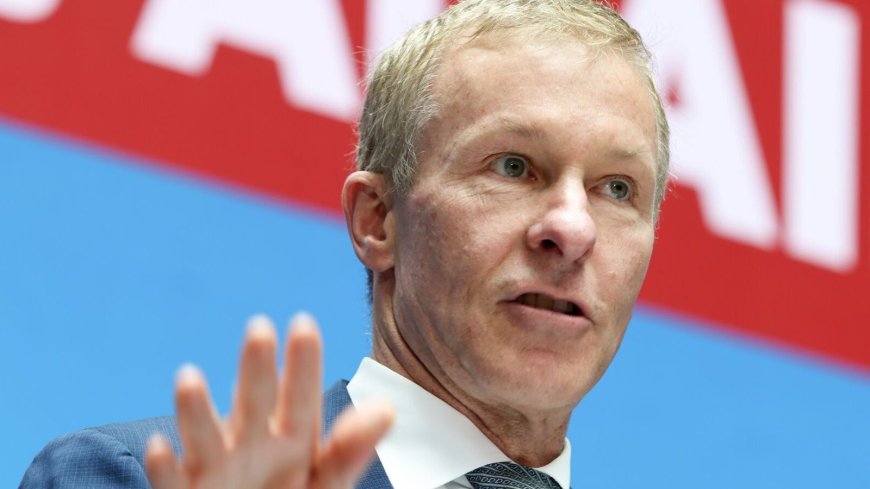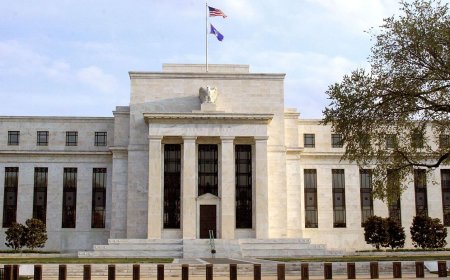United Airlines CEO Declares End of Low-Cost Model: What It Means for the Airline Industry
United Airlines CEO Scott Kirby says the low-cost airline model is "dead." Explore what this means for the aviation industry, market trends, analyst reactions, and investor outlook.

United Airlines CEO Says Low-Cost Model Is Dead – And He May Be Right
A Bold Declaration Shakes the Airline Industry
In a recent and candid statement, United Airlines CEO Scott Kirby proclaimed that the low-cost airline model is “dead.” His remarks, which quickly reverberated through the aviation sector, challenge long-held assumptions about how airlines compete on price and value in a post-pandemic world.
Speaking during an investor call, Kirby pointed to rising operating costs, customer expectations for service quality, and an evolving competitive landscape as key reasons why the once-dominant budget carrier model may no longer be viable. "Consumers have changed. They’re willing to pay more for reliability and comfort," Kirby emphasized.
Why the Low-Cost Model Is Under Pressure
The low-cost model, popularized by carriers such as Southwest Airlines, Spirit, and Ryanair, was built on the promise of ultra-low fares, no-frills service, and tight cost control. But several post-pandemic shifts have undermined its sustainability:
-
Fuel costs remain volatile and high compared to pre-pandemic levels.
-
Labor shortages have forced airlines to raise wages and training investments.
-
Customer preferences are evolving toward more reliable, seamless, and comfortable travel.
-
The rise of premium economy segments and bundled fare models is luring even price-sensitive travelers away from traditional low-cost offerings.
"Margins are being squeezed across the board," said Megan Harris, aviation analyst at Beacon Advisors. "But the budget carriers are particularly vulnerable because their model leaves little room for error."
United’s Strategic Pivot
Kirby’s comments were not just opinion — they reflect a broader strategic shift at United Airlines, which is investing heavily in:
-
Fleet upgrades, including new widebody aircraft with modern amenities.
-
Enhanced service offerings like improved in-flight entertainment and Wi-Fi.
-
Hub expansions to provide more direct routes and reduce delays.
United has already announced its biggest aircraft order in history to support this transformation. The airline is moving away from competing with budget carriers and instead focusing on attracting business travelers and premium leisure passengers.
How the Market Reacted
Investors took note of Kirby’s remarks. United Airlines (NASDAQ: UAL) saw a 1.8% uptick following the announcement, while shares of Spirit Airlines and Frontier dipped amid concerns over their long-term viability.
Wall Street appears to be rethinking the sector. "The high-growth, low-cost narrative is falling out of favor," noted Thomas Nguyen, airline equity strategist at Midline Capital. "We expect legacy carriers to outperform in the next few years as they capture more value from returning international and business travel."
Budget Airlines Face an Identity Crisis
For ultra-low-cost carriers, the challenge is existential. Spirit Airlines, which recently reported widening losses and cut several underperforming routes, is looking for ways to increase ancillary revenue without scaring off its core customer base.
Meanwhile, JetBlue’s planned acquisition of Spirit — under regulatory scrutiny — is now being evaluated in a very different industry climate. If low-cost flying is truly on the decline, consolidation may not solve the structural problems these carriers face.
"These companies were built for a different era," said Alicia Gomez, transport sector consultant at Altair Strategies. "Without a clear value proposition beyond price, they’ll struggle to adapt."
Analysts Split on the Long-Term Implications
Not everyone agrees with Kirby’s assessment. Some argue that low-cost carriers still have a place, especially on short-haul domestic routes and in emerging markets.
“Low-cost flying isn’t dead — it’s being redefined,” said Gomez. "But the days of $29 cross-country fares are behind us."
Others point out that macroeconomic conditions such as inflation and recession fears may force some consumers back toward lower fare options. However, if reliability and convenience remain high priorities, budget airlines may find themselves at a crossroads.
Investor Outlook: A New Era of Airline Economics
For investors, Kirby’s declaration could mark the start of a new valuation framework for airline stocks. No longer should market participants price legacy and low-cost airlines on the same multiple.
Institutional investors are already rotating toward carriers with premium offerings, diversified route maps, and global alliances. Delta, United, and American may benefit from higher yields and more resilient passenger bases, especially in a time of global uncertainty.
"We’re now seeing a bifurcation in the industry," Harris remarked. "Winners will be those who deliver value and reliability, not just low prices."
Conclusion: Changing Skies, Changing Strategies
Scott Kirby’s proclamation may prove prophetic. While low-cost flying won’t vanish overnight, the economics of the airline industry are undeniably shifting. Rising costs, higher service expectations, and operational complexity have made the traditional budget model harder to sustain.
Airlines that adapt — by focusing on operational excellence, customer experience, and long-term profitability — will likely shape the next chapter of air travel. Whether the low-cost model is dead or simply evolving, one thing is clear: the rules of the game have changed.
What's Your Reaction?
 Like
0
Like
0
 Dislike
0
Dislike
0
 Love
0
Love
0
 Funny
0
Funny
0
 Angry
0
Angry
0
 Sad
0
Sad
0
 Wow
0
Wow
0












































































